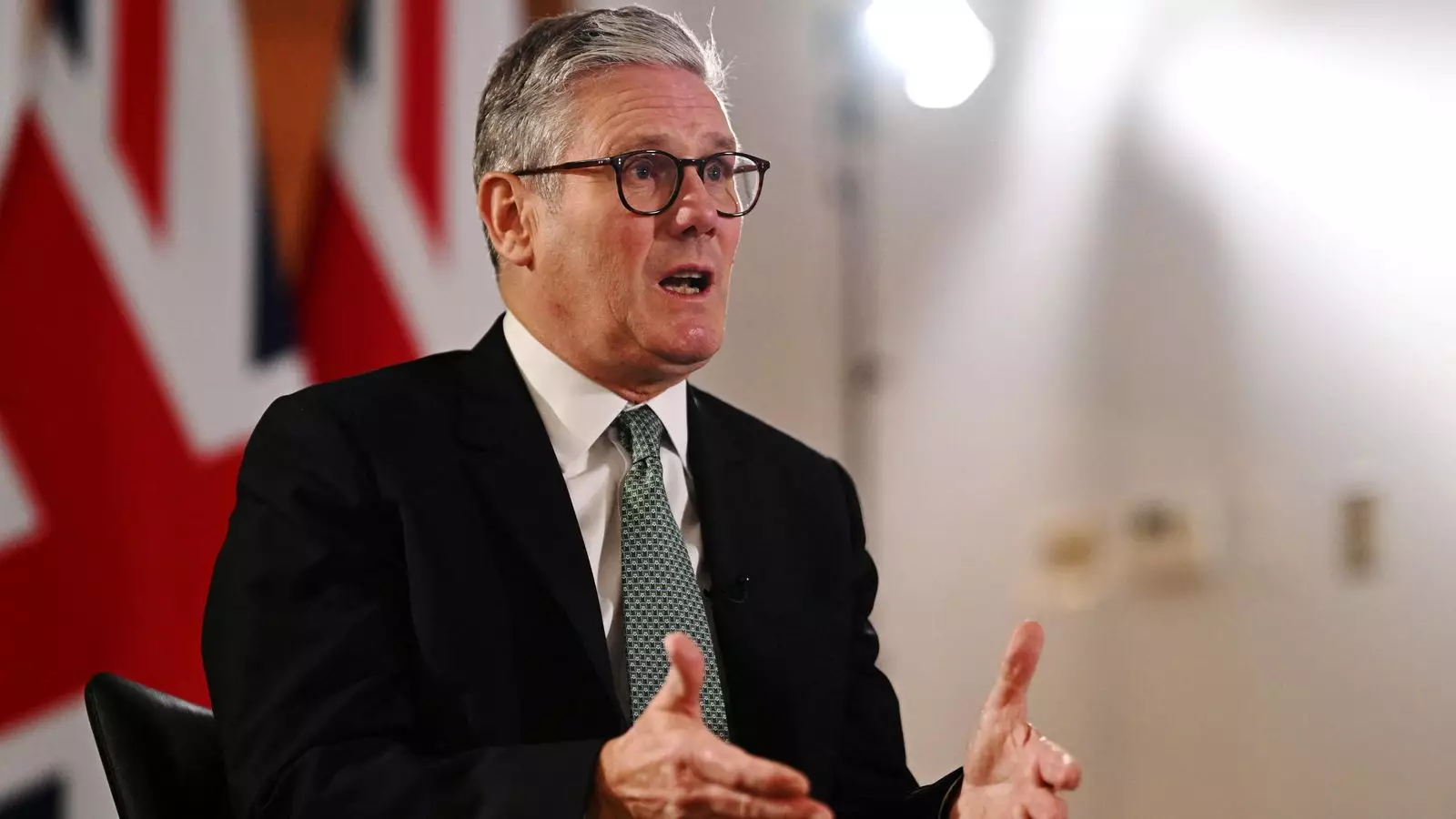The world of politics often intertwines with personal lives, creating a complex and sometimes controversial terrain. This is vividly illustrated by the recent situation involving Sir Keir Starmer, the leader of the Labour Party in the UK, who faced scrutiny over financial donations linked to accommodations for his family during a critical election period. What began as an effort to safeguard his son’s educational experience quickly transformed into a focal point for debate surrounding political ethics and the potential implications of financial support from affluent donors.
Starmer’s decision to accept a donation for a flat valued at over £20,000 from Lord Waheed Alli was made against the backdrop of heightened media attention and public scrutiny during the run-up to the election called on 22 May. Just weeks before, Starmer had promised his family, particularly his son, that he would shield them from the disruptions that come hand in hand with a political campaign. The situation was compounded by the stresses faced by students preparing for pivotal exams. Starmer’s assertion that “no money exchanged hands” raises questions regarding the subtle nuances of political donations and the fine line politicians walk when justifying their choices.
During a recent interview, Starmer expressed that ensuring his son could focus on his GCSEs without the added stress of politically generated chaos was a priority. The presence of journalists and protesters outside the family home was not merely a nuisance; it represented a significant disruption to a young person’s life during an intense examination period. This perspective underscores the human dimension of political roles—where personal and public life frequently clash. For Starmer, this meant sourcing a temporary solution that he believed would provide his son with the necessary environment to succeed academically.
While he may have made a formidable personal sacrifice to go into politics, the acceptance of donations paints a more complicated picture, particularly when he is under increased scrutiny for receiving a volume of donations that eclipses that of his peers. Such contradictions can easily lead to public fatigue, where perception can shift from understanding to outright criticism.
Starmer’s dilemmas are emblematic of a broader issue gripping many political leaders— the reliance on donations that may come with strings attached, or at least perceived expectations. The extensive financial gifts and hospitality from Lord Alli, who has historically supported the Labour Party, have led to uncomfortable dialogues about the influence of wealthy benefactors on politicians. Critics of the Labour leader have pointed out the irony of accepting large sums from donations while criticizing government figures from opposing parties for their similar practices.
Moreover, as Starmer navigates his own party’s expectations and public criticisms, he faces a rather grim reality: public trust is a prized commodity in politics, one that can easily erode with perceived inconsistencies and the emergence of damaging narratives. Each acceptance of a donation places his broader goals at risk, particularly as his party seeks to position itself as the ethical alternative in the political landscape.
The recent developments have sparked discussions not only about ethical behavior but also about the potential reforms needed concerning political donations overall. Starmer’s stance of no longer accepting clothing donations and his rationale for using hospitality as a means to mitigate taxpayer spending for security reflect a desire to operate transparently while still functioning within the parameters of a donation-heavy system. Whether changes will arise from these revelations remains uncertain.
Ultimately, the discussion surrounding Starmer’s decisions sheds light on a critical conversation about the role of money in politics, the ethical implications, and the personal sacrifices leaders must navigate. As politics continues to evolve, the sustainable path forward may hinge on finding the delicate balance between personal needs and the collective accountability demanded by the electorate.

Leave a Reply